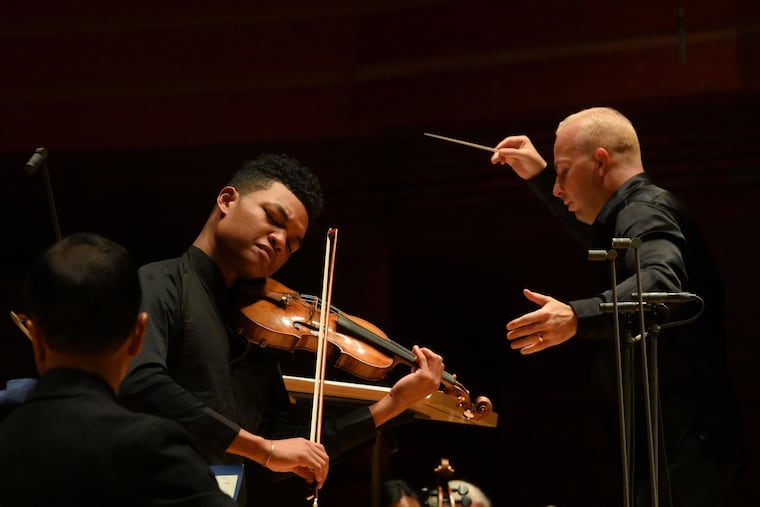Once overlooked artists are strengthening the classical canon
Performances of long overlooked works by Florence Price, William Dawson and Julia Perry give Bach, Mahler and Schumann new context.

The combination of #MeToo, protests after the murder of George Floyd, and the Black Lives Matter movement shook the status quo of classical music with a force that might have no precedent. Hardly an orchestra, chamber music series, or opera company was left unchanged by these events. The programming of neglected composers — primarily women and Black and brown artists — has become standard in Philadelphia and across the country.
For the most part, this new inclusion has been framed as a historical corrective, the righting of a wrong. It’s understandable. A reckoning was long due in classical music, which, like American society generally, had excluded more than half the human race from its power structures.
But something critical is getting overlooked amid the fervor with which classical music claims its new sense of conscience: the artistic value of the works being unearthed.
It’s been hard not to dwell on this phenomenon since a performance of William Dawson’s Negro Folk Symphony at the Kimmel earlier this season. The piece is no less an outpouring of genius than Copland’s Symphony No. 3, often cited as the great American symphony, and the fact that the Philadelphia Orchestra had played the Dawson only one other time since giving its premiere nearly nine decades ago is indeed an injustice.
But one day the piece may lose its news value, and it’s important to stake out a position now for Dawson’s work as a concert-hall regular as worthy as any Dvořák symphony or Brahms concerto. Its powerful second movement, “Hope in the Night,” is astonishing — a journey doleful and sweet, and ultimately the most lonely place the human soul has ever known.
There are undeniably important discussions to be had about representation in classical music — who is and isn’t made to feel welcome on both sides of the proscenium, and why the future of the art form depends on listeners being able to see people who look like them up on stage. But much of this era is about the past, going back to hear the art we declined to hear the first time around. And it turns out we missed a lot.
It’s early days in terms of research, publication, and performance of neglected works. And yet it’s already clear how much the poorer we were for not knowing the music of Julia Perry. Two groups are playing her brilliant, bracing Study for Orchestra in the next week and a half — the Curtis Institute’s orchestra on April 15, and the Philadelphia Orchestra April 20 and 22.
Mary Lou Williams’ atmospheric and incredibly inventive jazz-orchestral Zodiac Suite is getting a rare outing in Philadelphia Orchestra concerts with the Aaron Diehl Trio starting Thursday.
Some perceive the recent new programming mix as virtue signaling (a mix, by the way, that hasn’t left behind the Mahler and Schumann, but enhances it by giving new context). But the turning up of unknown or underappreciated gems is exactly the work of arts leaders in any era.
Florence Price is probably today’s most visible previously overlooked composer. There’s been some pushback on the idea that she was “America’s forgotten musical genius,” as one recent article put it. Some say her music isn’t great — just merely good. I think that question can wait until we have a more complete view of her output. What’s already clear is that her music has an absolutely original artistic imprint, and that always deserves to be explored and heard.
The repertoire is never fixed. Bach has been among the lesser performed composers at various points. The full breadth of Schubert wasn’t known until long after his death. By the time we’ve come to really know Price, Perry, and others, some works will emerge worthy of becoming repeat visitors and others will fade. We still don’t know what we don’t know. And when you’re talking about art, there’s no more exciting place to be than that.
Julia Perry’s “Study for Orchestra” is scheduled to be performed by the Curtis Symphony Orchestra led by Micah Gleason April 15 at 3 p.m. in Verizon Hall, Broad and Spruce Streets. The program also features Osmo Vänskä conducting Mahler’s “Symphony No. 1″ and Schumann’s “Piano Concerto” with pianist Amy Yang. curtis.edu, 215-893-1999.
The Philadelphia Orchestra will perform Williams’ “Zodiac Suite” with the Aaron Diehl Trio and Strauss’ “Also sprach Zarathustra” April 13 at 7:30 p.m. and 14 and 16 at 2 p.m. in Verizon Hall, conducted by Cristian Măcelaru; and Perry’s “Study for Orchestra” April 20 at 7:30 p.m. and 22 at 8 p.m. along with Mozart’s “Piano Concerto No. 24″ with pianist Inon Barnatan and Beethoven’s “Symphony No. 3″ led by Vänskä. philorch.org, 215-893-1999.